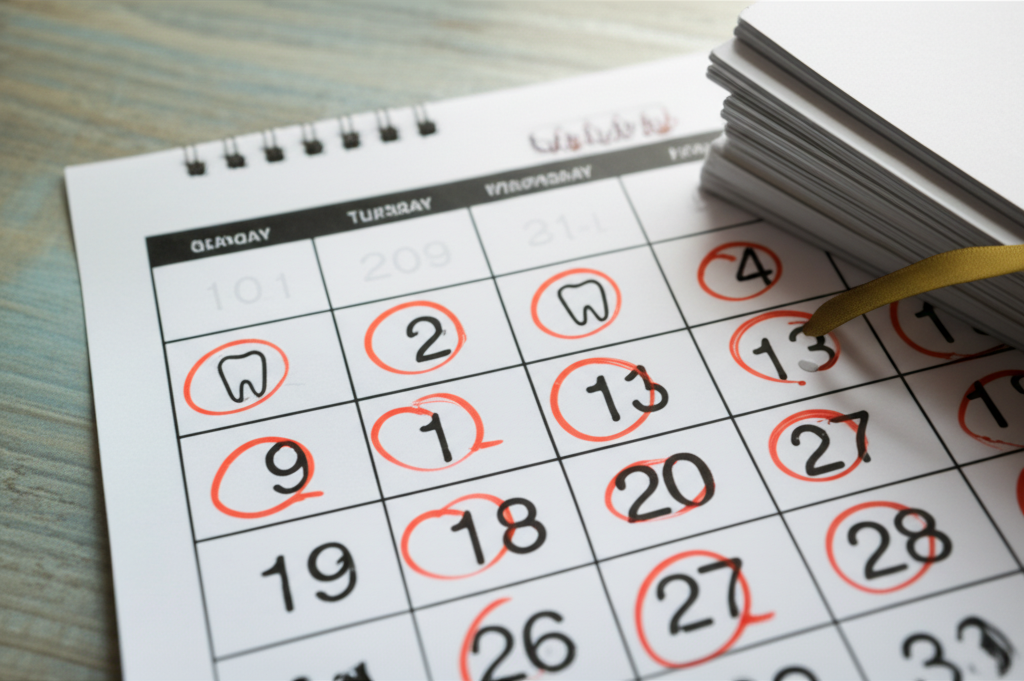
How Many CE Credits Do Dentists Need? Your State-by-State Guide to License Renewal
Wondering how many CE credits you need to keep your dental license up to date? You’re not alone! In this guide, I’ll show you exactly what continuing education (CE) hours dentists have to get, which classes you must take, and how you can always be on track so you never have to worry about your license. Don’t skip this—missing even one rule can risk your hard-earned license and cause big trouble. Read on for real numbers, simple tips, and answers to your top questions—all in plain English.
Table of Contents
1. Introduction: Why Dentists Can’t Ignore Continuing Education
You may have heard other dentists talk about CE credits, but trust me—these aren’t just for show. Continuing education for dentists is a big part of your work life. Dentistry changes often, from new infection rules to pain management and new dental practice standards. If you skip your requirements, you might lose your license and your job.
For example, I know someone who didn’t take a required CPR CE for dentists class, and the state board almost took his license away. He fixed it just in time. Stories like this prove you need to keep up with your CE credits.
2. What Is a CE Credit and Why Does It Matter?
Let’s keep it simple: A CE credit means “continuing education credit hour.” Dentists need to get a certain number of these every year (or two, or three—it depends where you live) to renew their license and stay allowed to work.
Why is this important? CE means all dental workers give safe, current care. Think of it like tuning up your tools and your know-how. If you skip it, you’ll use old ways while others have new ones—and patients can tell.
Bottom line: If you don’t have enough dental CE credits before your license is due, you might lose your right to work, and you could get a fine. That’s something everyone wants to avoid.
3. Does Every State Ask for the Same Number of CE Credits?
Short answer: No. Every state has its own dental board and its own rules.
Some states ask for as little as 20 CE credits every two years, some want as many as 50. It depends if you renew every year, every two years, or every three years. For example, California needs 50 hours every two years, but Texas wants 24. The subjects, which providers are okay, and even which topics you must take can be different across the country.
Is this fair? You might ask. States say their own people and health needs call for their own rules. That’s why you need to check your State Board of Dentistry’s real requirements—don’t just ask your friends who live somewhere else!
4. How Many CE Credits Do Most Dentists Need?
Most U.S. states want dentists to finish somewhere between 20 and 50 CE hours every renewal time. The average? About 30 hours every two years.
Here’s a quick table with a few sample states:
| State | Renewal Period | Total CE Credits Required |
|---|---|---|
| California | Biennial | 50 hours |
| Texas | Biennial | 24 hours |
| New York | Triennial | 45 hours |
| Florida | Biennial | 30 hours |
| Illinois | Biennial | 48 hours |
| Massachusetts | Biennial | 40 hours |
| Ohio | Biennial | 30 hours |
Tip: Some states have special rules for new dentists, specialists, or people returning after a break. Always check if you fit one of those groups!
5. What Courses Are Mandatory—and Which Can You Choose?
Not all CE credits are the same. Most state boards tell you some must-take subjects and let you pick the rest.
Usual “Must-Take” CE Courses
Most states require:
- Basic Life Support (BLS) / CPR Certification
- Infection Control / OSHA Compliance
- Dental Jurisprudence / Ethics
- Pain Management / Opioid Prescribing (for those with DEA licenses)
- Radiography Safety
Some states also want you to learn about:
- Domestic Violence
- Human Trafficking
- Elder or Child Abuse
- Cultural Competency
If you skip a required subject, it’s like skipping a question on a test—you lose points!
Elective CE Credits
Once the required classes are done, you can usually pick classes that match your work or interests:
- Cosmetic dentistry
- New tooth repair methods
- Dental implants
- Practice management (if it’s about patient care)
- Public health dentistry
Heads up: Some states only let you count so many “self-study,” “online” classes, or non-clinical subjects. You might need most of your hours from in-person events or live webinars.
6. Which Providers and Formats Count as Real CE?
You can’t just watch YouTube or read a quick article and call it done. Your CE must be from approved CE providers.
The main names are:
- ADA CERP (Continuing Education Recognition Program)
- AGD PACE (Program Approval for Continuing Education)
These groups make sure the class is good and up to date.
CE Formats That Usually Count
- Live talks and classroom teaching
- Conferences and big meetings
- Hands-on training
- Interactive online webinars
- Journal clubs (if run by an approved provider)
- Teaching a dental class (some limits)
- Writing a dental paper (some limits)
What Usually Does NOT Count
- Random business classes not linked to patient care
- Unapproved self-study
- Social parts of meetings
Pro tip: Good labs, like a trusted digital dental lab, sometimes give workshops or webinars with CE hours—just check first if they’re approved!
7. How Do You Check Your State’s Exact CE Rules?
This step is where lots of dentists mess up. Don’t guess, and don’t just ask friends. Go right to your State Board of Dentistry’s website. Search “[Your State] Dental Board CE Requirements.” There you’ll see:
- Renewal dates and how often you have to renew
- Needed CE topics
- How many online hours are allowed
- Which providers the state says are okay
Some boards even link to CE courses they say are good. Save the site—you’ll need it every time you renew or if rules change!
If you move to a new state, ask both old and new boards if your old CE counts (sometimes it doesn’t).
8. What Happens If You Miss a CE Requirement?
This is the big worry for most dentists. If you miss the right number of CE hours, or skip a must-have class like infection control, you could get:
- Slowed or denied license renewal
- Fines
- License taken away (suspended or revoked)
- More trouble and time to get your license back
- Random checks (About 10-15% of dentists get flagged in a usual state board CE check every year!)
Suddenly, your name could show up in state trouble lists, and you’ll need to explain why you broke a simple rule.
Don’t let this be you. Track your CE hours, save all certificates, and stay ahead.
9. How Can Dentists Track and Report Their CE Credits?
Picture this: it’s almost renewal time, and the state board needs you to prove 30 hours of CE. If your records are a mess, you might have to try and gather years of records in a few days—that’s no fun. Here’s how to stay ready.
Good Record Keeping Tips
- Start a digital or paper CE folder for every license cycle
- Keep certificates, emails, class names, and provider names
- Write down when you started and finished each class
- Keep these for a few years (some states want records for up to 6 years)
Many dental groups have digital tools or apps to help you track. Some will even send reminders and help you fill out renewal forms.
How to Report
Most state boards use online systems, where you put in each CE class, upload your certificate, and sometimes get a quick answer. If you’re checked, you’ll need to show copies of all your proof.
10. Where Should You Find Reliable, Quality CE?
Don’t waste time or cash on junk classes—pick trusted groups:
- American Dental Association (ADA)
- Academy of General Dentistry (AGD)
- Specialty groups (pediatric, root canal, or false teeth societies)
- Dental schools and colleges
- Pro labs that run real courses (for example, zirconia lab workshops)
- State and local dental clubs
Look for free or cheap CE online, especially from big dental companies or during virtual meetings. Just make sure the class fits your state’s rules!
11. Conclusion: Remember the Essentials!
It’s simple: know your state’s dental CE rules—don’t guess, always check! Plan your continuing education early so you don’t get stressed, checked, or even lose your right to work.
Not sure? Visit your state board’s site, call your dental groups, and ask before you sign up. That’s how you stay smart, safe, and able to work.
12. FAQs About Dental CE Credits
Q: What happens if I move to a new state?
A: Each state decides if your old CE hours count. Some say yes, others say no. Ask your new board, and keep all your CE proof.
Q: Do CE credits transfer between states?
A: Not always! Some states take your old credits; others don’t. Always check before you hope it’ll count.
Q: Are there different rules for specialists?
A: Sometimes. For example, oral surgeons might need extra classes on anesthesia or sedation. Check with your board or group.
Q: Can I get CE credit for reading dental journals?
A: Sometimes, if you do a study quiz from an approved journal. But there’s usually a cap on these self-study hours.
Q: Is there a limit on online CE credits?
A: For many states, yes. Some only let part of your hours be online or self-study.
13. Key Things to Remember (Bullet Point Summary)
- Every state has its own CE rules—never guess they’re the same as someone else’s.
- Most states want 20-50 hours of CE every time you renew.
- Classes like CPR, infection control, ethics are almost always needed.
- Only use approved CE providers.
- Track every hour and keep all certificates for at least 3-6 years.
- Getting CE wrong can put your license in trouble.
- Check your State Board’s website often.
- When not sure, call the board before you renew.
- Try new classes from places like an china dental lab, or sign up for hands-on lessons at a good provider.
- Plan your CE all year so you don’t run out of time or mess up.
Dr. Joe Dental says: “Don’t let continuing education be something you do last minute. It keeps you safe and your care up to date—do it right, and you’ll never worry about losing your license!”








